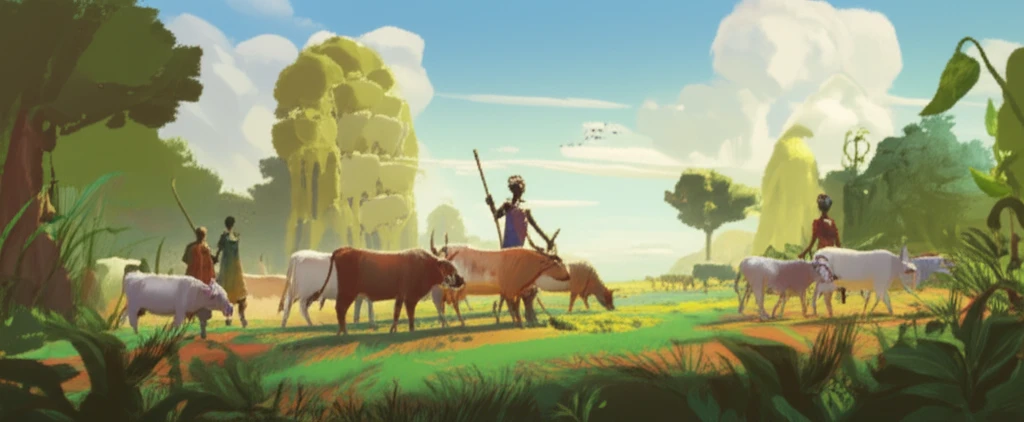
Unlocking the Secrets of Sustainable Farming: How Local Knowledge is Shaping the Future of Agriculture in West Africa
"Discover how agro-pastoral communities are using their deep understanding of forage resources to revolutionize livestock production and adapt to climate change."
Agriculture, the backbone of many economies, is facing unprecedented challenges. Climate change, resource scarcity, and the need for sustainable practices are reshaping the industry. However, amidst these global concerns, a wealth of knowledge lies within local communities, particularly in the agro-pastoral systems of West Africa. This region, characterized by its harsh climate and reliance on livestock, provides a compelling case study for how traditional ecological knowledge can revolutionize modern farming.
This article explores the groundbreaking research into the forage resources utilized by agro-pastoralists in West Africa. It examines how these communities, who have been farming for generations, are uniquely positioned to navigate the complexities of sustainable agriculture. Their deep understanding of forage plants, livestock behavior, and seasonal changes offers valuable insights for scientists, policymakers, and anyone interested in a greener future.
By focusing on the specific criteria used by agro-pastoralists to value their natural forage resources, this piece highlights a path toward climate-resilient agriculture. It demonstrates the importance of recognizing and integrating local knowledge into broader strategies for environmental conservation, livestock production, and ultimately, community well-being.
The Vital Role of Forage Resources: A Foundation for Sustainable Livestock Production

The foundation of sustainable livestock production lies in understanding and effectively managing forage resources. In West Africa, where water is scarce and climate variability is high, the availability of forage directly impacts the success of farming. The research underscores the critical role that forage plays in the local agricultural systems. It provides the means for feeding livestock, adapting to seasonal changes, and building long-term resilience.
- Palatability: The taste and appeal of a plant to livestock, which affects how much they consume.
- Nutritional Value: The essential nutrients (proteins, carbohydrates, and vitamins) provided by the forage, critical for livestock health and productivity.
- Seasonal Availability: Whether the forage is accessible and abundant during specific times of the year.
- Impact on Livestock: How the forage affects milk production, growth, and overall health.
Embracing the Future: How Local Knowledge Can Lead the Way
The research demonstrates the incredible value of integrating local ecological knowledge with scientific approaches. This study not only informs but also empowers. It provides a compelling framework for building climate-resilient and sustainable agricultural systems by recognizing and valuing the deep understanding of the communities closest to the land. As we confront the challenges of climate change and resource scarcity, embracing traditional knowledge is not just a respectful act but a necessary strategy for ensuring a thriving agricultural sector and a healthier planet. This approach promises to create lasting impacts in farming, and the legacy will inspire generations to come.
